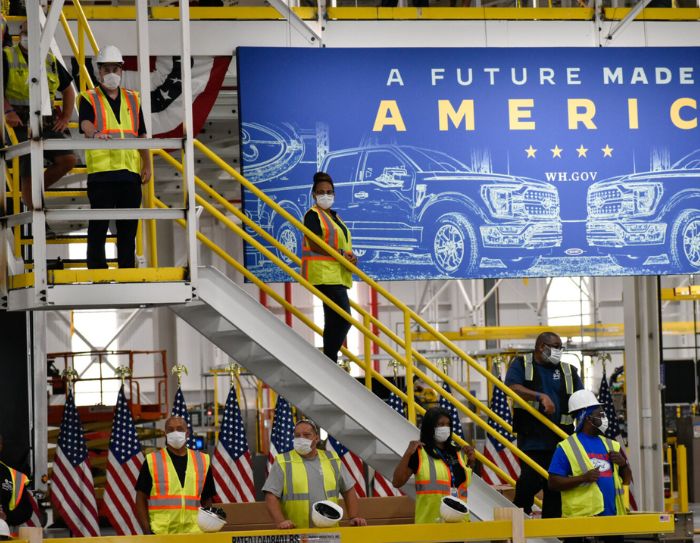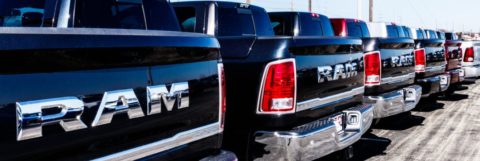Michigan Advance
Dec. 19, 2022
Rick Haglund
We’ve seen this happen many times: A Detroit automaker indefinitely “idles” an aging assembly plant that builds a slow-selling model and has been shedding workers for decades.
Stellantis, formerly Fiat Chrysler, announced Dec. 9 it will indefinitely halt operations at its Belvidere, Illinois assembly plant on Feb. 28. The shutdown is called an idling because the automaker is not allowed to permanently close a plant under its current United Auto Workers union labor contract, which expires in September.
The Belvidere plant builds the Jeep Cherokee. Sales of the SUV have been plunging for years and were down 61% in the first nine months of this year compared to the same period in 2021.
UAW Vice President Cindy Estrada said the union is “deeply angered” by the plant idling, which will result in the indefinite layoffs of the plant’s 1,350 employees. The factory, which opened in 1965, once employed more than 4,000 workers.
And in a potential move we’ve seen before, Reuters reported that Cherokee production might move to Stellantis’s Toluca, Mexico, plant.
Stellantis said the Belvidere idling was mainly a result of cost cutting as it invests more than $30 billion in electric vehicles over the next three years.
“Our industry has been adversely affected by a multitude of factors like the ongoing COVID-19 pandemic and the global microchip shortage, but the most impactful challenge is the increasing cost related to the electrification of the automotive market,” the company said.
But some see a broader theme in the Belvidere plant idling. A recent Detroit News story described the shutdown as an ominous shifting of auto investment from the Midwest to the South as electric vehicles begin to supplant gasoline-powered cars and trucks.
“The Midwest was the home for manufacturing. Now it’s not,” P.S. Sriraji, director of the Urban Transportation Center at the University of Illinois Chicago told the News.
That’s an overstatement, particularly in relation to auto manufacturing. Auto investment, including electric vehicles, is still heavily concentrated in the Midwest, according to a new Chicago Federal Reserve report.
Michigan remains the top auto-producing state in the country, churning out about 19% of the nation’s cars and trucks annually.
University of Michigan economists, in their latest forecast, expect the state’s auto industry to be a bright spot in the state’s economy over the next several years. That’s in part because of the thousands of electric vehicle and other announced auto jobs expected to be created in the state.
Ford, General Motors and Stellantis have announced more than $18 billion in factory investments in Michigan since 2019.
Yes, the South is a threat to the Midwest’s historic dominance in auto manufacturing. Ford is investing $11.4 billion, the largest expenditure in the company’s history, to build a battery plant in Kentucky and a battery and electric vehicle assembly plant in Tennessee.

Workers at the Ford Motor Co. Rouge Electric Vehicle Center in Dearborn watch President Joe Biden deliver remarks on the electric F-150 Lightning pickup truck, which will be produced at the factory, and his American Jobs Plan. Photo courtesy of Michigan Advance.
Foreign automakers and several new electric vehicle manufacturers are building new battery and electric vehicle assembly plants outside the Midwest.
But the Belvidere plant idling is more a reflection of sweeping challenges the industry is facing.
The Belvidere plant once turned out more than 250,000 vehicles a year. But Stellantis sold just under 31,000 Cherokees, the plant’s only product, in the first nine months of this year.
Operating assembly plants at well below their capacities was one reason Chrysler and GM ended up in bankruptcy reorganization during the Great Recession. It was a harsh lesson learned.
Now they’re making billions of dollars in profits despite pandemic-induced supply chain issues that have slashed vehicle sales.
“It’s almost like everybody got religion during the downturn,” said Glenn Stevens, executive director of industry group MichAuto.
The conversion to electric vehicles is requiring automakers to make hard decisions about future products and manufacturing locations. It’s called rationalization in industry parlance.
“These are global companies pouring billions of dollars into electric vehicles,” Stevens told me. “They need to rationalize products and capacity. That’s the big picture.”
Ford, GM and Stellantis will also negotiate new national labor contracts with the UAW next year, a process that will play a major role in where those automakers’ cars and trucks will be produced.
As it has in the past few negotiating rounds, the UAW will push to keep open existing plants and secure commitments for future investments. Much of the new spending announced by the Detroit automakers over the past decade has been required by UAW contracts.
The Belvidere assembly plant idling isn’t necessarily a death sentence. Automakers have a history of closing and then reopening plants. Among them is GM’s Detroit-Hamtramck assembly plant, which the automaker announced for closing in 2018 and later reopened as an electric vehicle factory.
Earlier this year, Stellantis announced it would invest $2.8 billion to convert its Brampton, Ontario plant to electric vehicle production. The plant was seen as being at risk of closing because the automaker is ending production of Dodge muscle cars built there.
“I wouldn’t be surprised that plants that look like they’re gone might not be gone,” Stevens said.
Don’t write the Midwest’s manufacturing obituary just yet.

